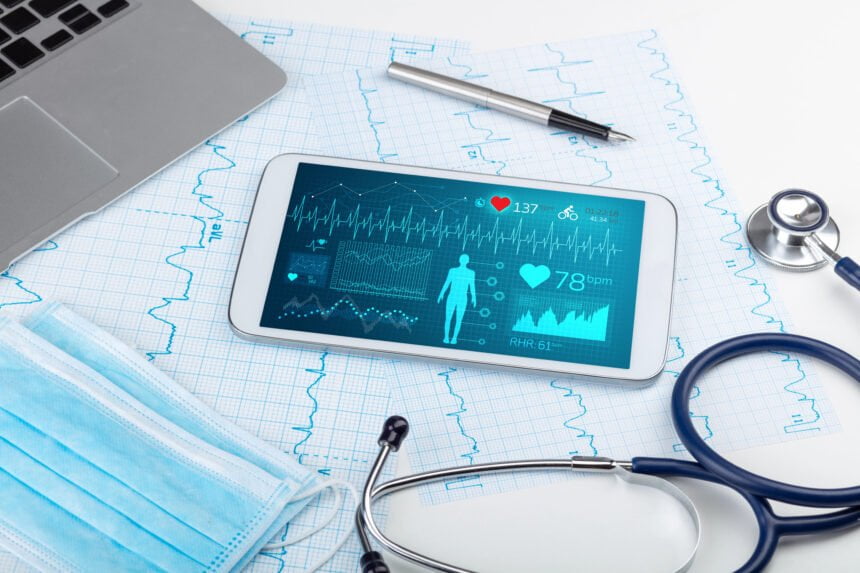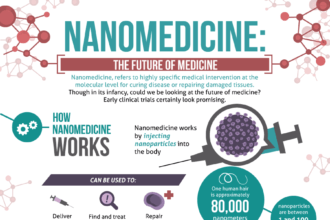The healthcare sector is going through some massive changes. New breakthroughs in technology have shaped the industry in incredible ways over the past decade.
We have talked about some of the most obvious technological advances that have affected healthcare. But there are some others that have not gotten as much discussion.
As we hurtle towards the future, the pace of technological innovation only seems to be accelerating. From breakthroughs in fields like artificial intelligence to groundbreaking developments in renewable energy, there’s no shortage of cutting-edge advancements on the horizon that have the potential to transform our lives.
Here are 5 key technological trends to keep an eye on in the coming years:
3D Printing Goes Mainstream in Healthcare
One of the most transformative technological innovations of the past decade has been the rise of 3D printing. What was once a niche technology reserved for specialized industrial applications is now becoming increasingly accessible to consumers and businesses alike. 3D printing, also known as additive manufacturing, allows users to create physical objects from digital designs, layer by layer.
MobiHealthNews reports that 3D printing is having a surprising impact on healthcare. One of the biggest benefits is that it helps medical specialists create three-dimensional models to aid their patients.
While early consumer 3D printers were often limited in their capabilities and quality, the technology has advanced rapidly. Companies like Stratasys and Mark3d a leading provider of 3D printing solutions, have played a major role in driving these advancements. Stratasys offers a wide range of 3D printers, materials, and software tools that enable users to create high-quality, functional prototypes and end-use parts.
As 3D printing becomes more affordable and user-friendly, we’re likely to see it integrated into more and more aspects of our lives. From custom-made home goods and personalized medical devices to large-scale industrial applications, the potential of 3D printing is virtually limitless. In the coming years, expect to see 3D printing move beyond the realm of hobbyists and enthusiasts and become a mainstream technology that transforms the way we design, manufacture, and even consume products.
The Rise of Quantum Computing
Quantum computing is a rapidly advancing field that has the potential to revolutionize everything from cryptography to drug discovery. Traditional computers, based on classical bits represented as 0s and 1s, are limited in their ability to tackle certain complex problems. Quantum computers, on the other hand, utilize quantum bits (qubits) that can exist in superposition, allowing them to perform certain calculations exponentially faster than their classical counterparts.
The Saint Louis University School of Medicine has a great study on the importance of quantum computing in the medical field. It is especially important for conducting medical research.
While quantum computing is still in its early stages, with significant technical hurdles to overcome, the potential benefits are enormous. Quantum computers could be used to break the encryption that secures much of our online communication and financial transactions, but they could also be used to create unbreakable cryptographic systems. They could also accelerate the development of new medications, materials, and energy solutions by simulating complex chemical and physical systems.
As research and investment in quantum computing continue to grow, we’re likely to see significant breakthroughs in the coming years that bring this transformative technology closer to mainstream adoption.
The Proliferation of 5G and the Internet of Things
The rollout of 5G, the latest generation of wireless technology, is already underway in many parts of the world. 5G promises significantly faster download and upload speeds, lower latency, and increased capacity, paving the way for a wide range of new applications and use cases.
One of the key drivers of 5G adoption will be the continued growth of the Internet of Things (IoT) – the network of connected devices, sensors, and appliances that can communicate with each other and with cloud-based systems. 5G’s improved connectivity and low latency will enable more efficient and real-time data transmission, which is crucial for the proliferation of IoT technologies in areas like smart homes, smart cities, connected vehicles, and industrial automation.
As 5G networks become more widespread and IoT devices become increasingly ubiquitous, we can expect to see a surge in innovative applications that leverage the power of this connected ecosystem. From enhanced remote monitoring and control to sophisticated predictive maintenance and optimization, the combination of 5G and IoT has the potential to transform a wide range of industries and aspects of our daily lives.
Advancements in Renewable Energy and Energy Storage
The transition to renewable energy sources, such as solar, wind, and geothermal, has been steadily gaining momentum as the world grapples with the challenges of climate change and the need for sustainable energy solutions. While renewable energy technologies have made significant strides in recent years, further advancements in efficiency, cost-effectiveness, and storage capabilities will be crucial in accelerating the shift away from fossil fuels.
Improvements in battery technology and energy storage systems will play a pivotal role in this transition. As the cost of renewable energy generation continues to decline, the ability to effectively store and distribute that energy will become increasingly important. Advancements in areas like lithium-ion batteries, solid-state batteries, and innovative energy storage solutions like pumped-storage hydroelectricity and thermal storage could unlock new opportunities for renewable energy to become the dominant source of power generation worldwide.
Advancements in Artificial Intelligence and Machine Learning
AI is another incredible new technology that is having a huge impact on the healthcare sector. We talked about some of the many implications of AI in healthcare in this article.
The rapid progress in artificial intelligence (AI) and machine learning (ML) has been nothing short of remarkable. From AI-powered personal assistants and language models to advanced algorithms for image recognition and predictive analytics, these technologies are already transforming numerous industries and aspects of our lives.
As AI and ML continue to evolve, we can expect to see even more sophisticated and capable systems emerge. Breakthroughs in areas like natural language processing, computer vision, and reinforcement learning could lead to AI systems that can understand and interact with the world in increasingly human-like ways. Additionally, the integration of AI and ML with other emerging technologies, such as robotics and the Internet of Things, could unlock new frontiers of automation, optimization, and decision-making.
As these five technological advancements and many others continue to evolve, the future promises to be both exciting and challenging. Navigating the complex landscape of technological change will require a combination of foresight, adaptability, and a willingness to embrace the transformative potential of these innovations.









